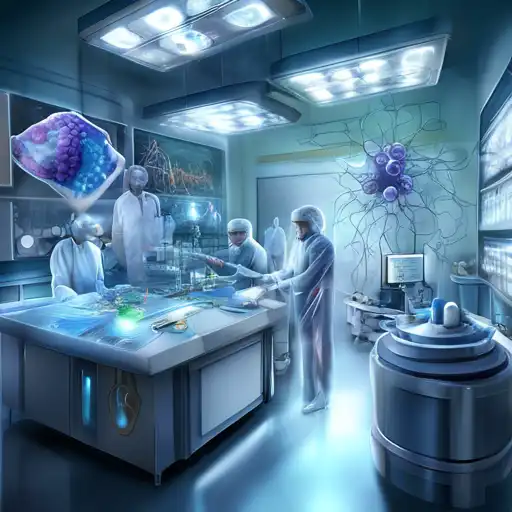Introduction to Nanotechnology in Medicine
Nanotechnology, the science of manipulating matter at the atomic and molecular scale, is set to revolutionize the medical field. With its ability to operate at the same scale as biological molecules, nanotechnology offers unprecedented opportunities for diagnosis, treatment, and prevention of diseases. This article explores the groundbreaking advancements and potential of nanotechnology in medicine.
The Promise of Nanotechnology in Healthcare
Nanotechnology in medicine, often referred to as nanomedicine, involves the use of nanoparticles to deliver drugs, heat, light, or other substances to specific cells in the body. This precision targeting minimizes damage to healthy cells and maximizes the therapeutic effects, heralding a new era in personalized medicine.
Targeted Drug Delivery
One of the most promising applications of nanotechnology is in the field of targeted drug delivery. Nanoparticles can be engineered to seek out and bind to specific cells, such as cancer cells, delivering medication directly to the diseased area without affecting the surrounding healthy tissue.
Early Disease Detection
Nanotechnology also plays a crucial role in the early detection of diseases. Nanosensors can detect biomarkers at much lower concentrations than traditional methods, enabling earlier diagnosis and treatment of conditions like cancer and heart disease.
Current Applications of Nanotechnology in Medicine
Today, nanotechnology is already making waves in various medical applications. From nanoparticle drug delivery systems to nanorobots for surgery, the technology is paving the way for innovative treatments and procedures.
- Nanoparticle-based vaccines
- Nanorobots for precision surgery
- Nanofibers for tissue engineering
- Quantum dots for imaging
Challenges and Ethical Considerations
Despite its potential, the integration of nanotechnology into medicine faces several challenges. These include technical hurdles, regulatory issues, and ethical concerns regarding privacy and the long-term effects of nanoparticles on the human body and environment.
The Future of Nanotechnology in Medicine
The future of nanotechnology in medicine is bright, with ongoing research exploring its potential to cure diseases that are currently untreatable. As we continue to unlock the secrets of the nanoscale, the possibilities for innovation in healthcare are limitless.
In conclusion, nanotechnology in medicine represents a frontier of medical science that promises to transform healthcare delivery. With its ability to target diseases at the molecular level, nanotechnology offers hope for more effective treatments, fewer side effects, and personalized medicine tailored to the individual's genetic makeup.
